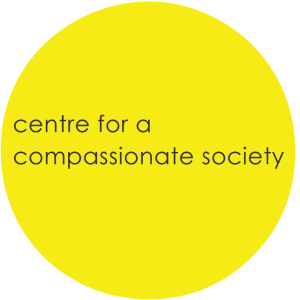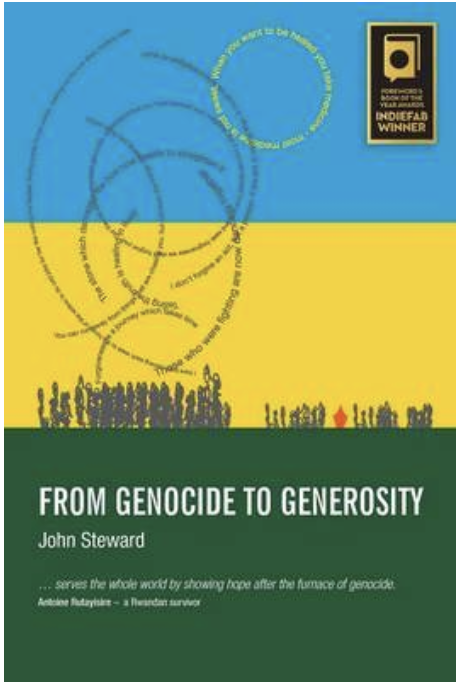In recent years, scientists and contemplatives alike have highlighted the contribution of (inwardly and outwardly directed) compassion, to the cultivation of personal and social wellbeing. We have heard less about the nature and value of forgiveness. Perhaps this is because the mindfulness and compassion-based movements have grown out of collaborations between western researchers and Buddhist practitioners and, as one senior Tibetan Buddhist teacher and translator argues, Forgiveness is not Buddhist[1] – despite it often being inappropriately associated with compassion, or presented as an extension of loving-kindness.
While we may concede that forgiveness is not a term or process explicitly discussed in Buddhist texts, forgiveness is not only central to the Christian tradition, its spiritual, ethical and psychological importance is evident in the teachings of many religious and philosophical traditions – not just the Abrahamic faiths.
Furthermore, 2019 marked the 30th Anniversary of scientific study in the area of forgiveness which has established forgiveness process models, forgiveness measurement scales, and “an evidence-based treatment, ‘Forgiveness Therapy’, used by thousands of mental health professionals” [2]. During this period, several meta-analyses have testified to the social and psychological benefits of forgiveness – not just as an antidote to resentment (which can drive cycles of interpersonal and inter-group conflict) but in counteracting a number of other concomitant and unwholesome psychological states. In the last few years the field has extended to examine the importance of self-forgiveness.
The Course
In this context and in collaboration with the Centre for a Compassionate Society[3], The Contemplary is delighted to be offering an eight-week on-line course, titled To Live Well, created and led by John Steward PhD. This is the second such course offered in Australia and we are grateful to our first cohort of participants whose feedback has led to the extension of the course to its current eight week, three hour a week format.
To Live Well provides an opportunity to gain a deeper understanding of the processes involved in forgiveness of self and others, inspired and resourced by the lived experience of Rwandans.
Following that country’s experience of genocide and defying expert prognostications, the processes of forgiveness revealed a hitherto unanticipated potential for peace-building, reconciliation and healing. After 20 years of part-time experience, mentoring healers and peace-builders in Rwanda, John pondered the question: Is this process of healing and change only for Rwandans?
His response was to draw together inspiring and remarkable stories of transformation and recovery in a publication called “From Genocide to Generosity”. Based on this publication, John then created the To Live Well course, providing a valuable opportunity for people to come together to study and reflect upon insights from Rwandans and in this way to experience the impact of stories of healing, forgiveness and living generously, on our own capacity to live well. The course will assist participants to review the impact of emotions in our own stories and consider how to forgive our self, before looking at options for peaceful acts of justice and healthy relationships with others.
The Course Structure
Over eight Tuesdays in April, May & June participants will meet, on each occasion, for three hours to:
- Create a safe space to share something of their personal story
- Reflect on our experiences of grief and loss, and consider how to move ahead in life without ignoring the difficult events
- Observe the role of our emotions, how we relate to our feelings and their impact on our communicating with others.
- Explore forgiveness and how it works.
- Consider the challenges of reconciliation, and why it is so rare.
In a gentle, guided process, each participant will find food for thought and action that may offer personal benefits and sharpen life skills. All along the way the stories of human change and recovery from Rwanda will accompany participants and offer guidance and encouragement.
Quotes from participants:
“The fields of human relations, intergroup relations and inter-religious relations are full of eloquent exhortation to mend fences, build bridges, get along, and practice mutual respect. High-minded speech does not get someone there. In my work many ask, ‘Yes, but how do I do this?’ To Live Well offers a manageable, engaging and very helpful approach to both learning and applying the skills that promote living well together even following times of deep pain and hurt. I recommend it with enthusiasm and without reservation.” – Emeritus Professor, The Rev’d Gary D Bouma, UNESCO Chair in Inter-religious and Intercultural Relations – Asia Pacific. Monash University.
“The challenge to me was in holding up the mirror to myself, my thoughts and my feelings around forgiveness, and how my actions impact others.”
“I can see huge potential for those who have a willingness to explore ways of taking opportunities to create a more peaceful world.”
“It gives a path to peace, and tools and strategies to make the principles practical.”
“It gives the courage to live with emotional intelligence and to be your best self.”
Quotes from people who participated in the 2020 course here in Australia:
“The journey of the workshop is one that values you as a person in your situation; it doesn’t have ‘pat’ answers, does not try to force or enforce things, rather it is invitational, and offers understanding, in a deeply meaningful way, of the journey of forgiveness and healing.”
“I loved the simplicity of the course, demonstrating incredible role models who have forgiven perpetrators. This allowed them to move on and even embrace ongoing relationships with them.”
“It’s for anyone struggling with forgiveness of themselves and/or others.”
“People sharing their insights and interpretations of the context and, providing different perspectives. Group discussions with people expressing agreement to what was being shared. ‘Light-bulb’ moments – realizing what was blocking my progress of healing and forgiveness.”
“Helps you to look at things you may have ignored – what is sitting there like sediment; becoming open to new awareness.”
“It’s confronting but also healing and restorative.”
[1] Tricycle Magazine Winter 2017, Ken Mcleod
[2] Reflecting on 30 Years of Forgiveness Science, Robert Enright Ph.D. Psychology Today, April 2019
[3] The Centre for a Compassion Society founded by the Community Church of St Mark in 2019

